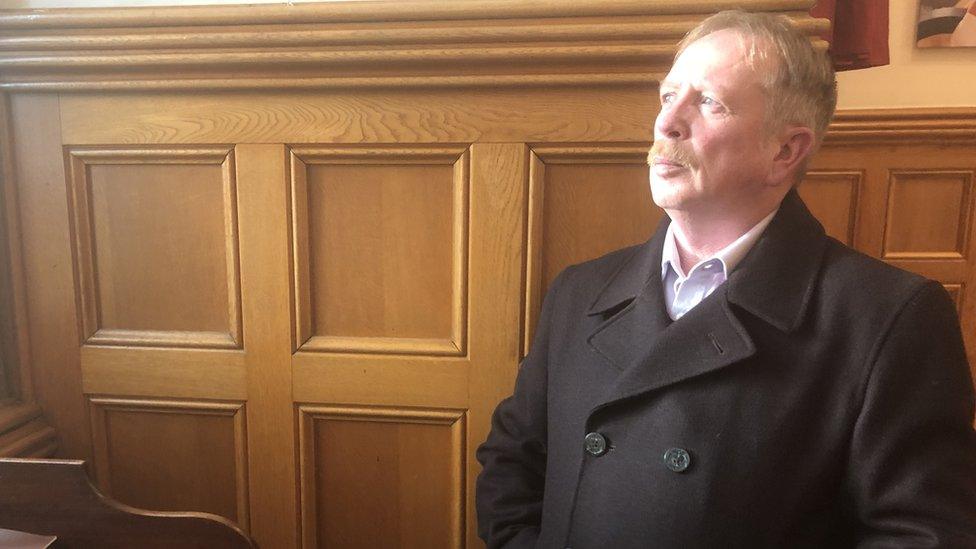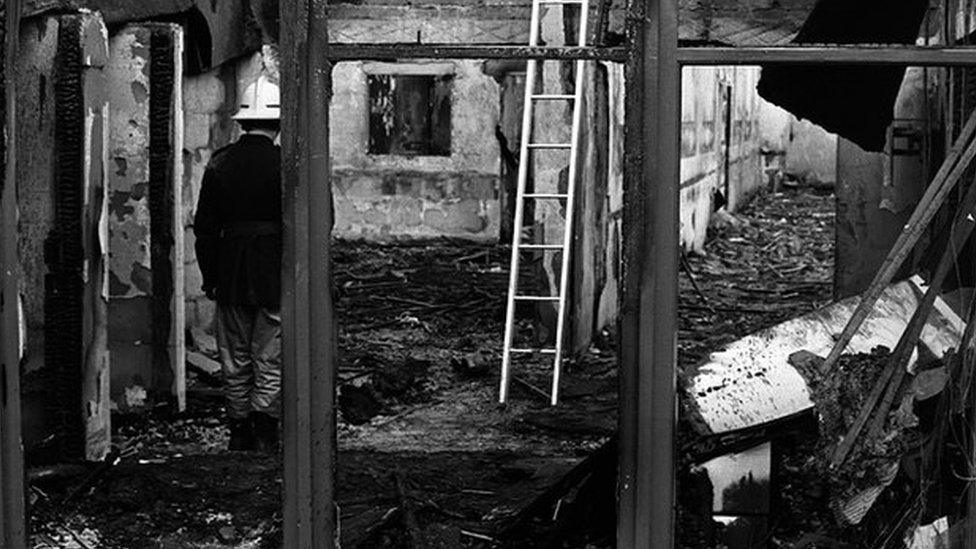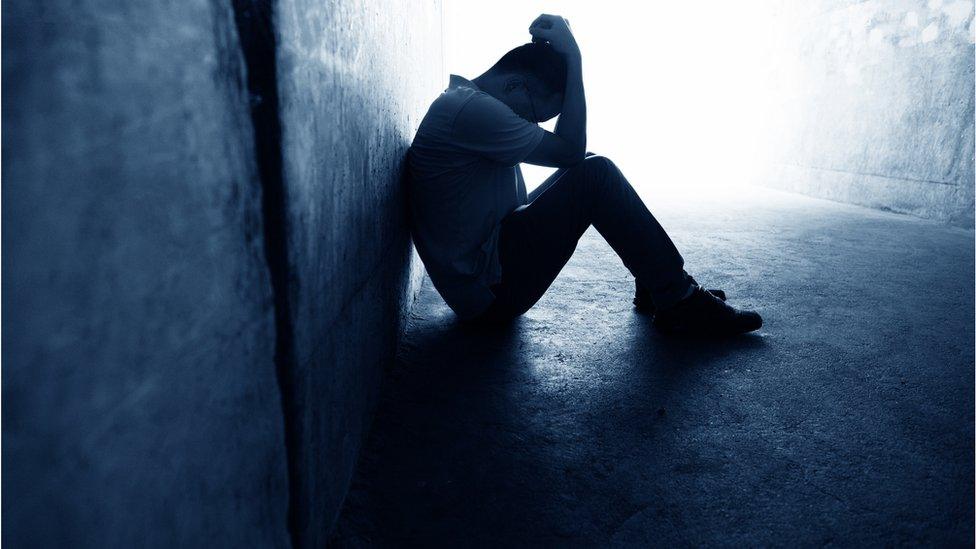Philip McKinney shares decades-long depression struggle
- Published

Philip McKinney said he had been struggling with his mental health from the age of 12
An Alliance councillor has spoken out for the first time about his decades-long battle with depression.
Philip McKinney, who was only diagnosed with depression recently, said he had been struggling with his mental health from the age of 12.
The 61-year-old former police reservist witnessed the aftermath of the La Mon bombing in 1978 and served as a soldier in the Falklands.
He said, like many others, he still lived with "baggage from the Troubles".
The councillor for Londonderry's Waterside told BBC Radio Foyle that although attitudes to mental health have improved, not enough was being done to address the issue.
'The black dog'
After leaving the Royal Ulster Constabulary (RUC) part-time reserve, Mr McKinney joined the Army.
He said his mental health deteriorated to such an extent, he was put on suicide-watch.
He also recalls the loss of a family relative to suicide as one of the darkest chapters in his life and "something you can never deal with".
It was only on the advice of his wife, Heather, that he recently decided to go to the GP and agree to counselling.

Twelve people were killed in the La Mon bomb in 1978
Mr McKinney described his depression as "like a black dog" that would "still come over him" on occasion.
"When the black dog would come on you, the last time I remember, all I wanted to do was climb into bed and not get-up and go to work," he said.
'Only a young man'
Mr McKinney said his experience as a reserve constable had a prolonged affect on his mental health.
He said he remembered being on duty the night of the La Mon House Hotel bombing, where twelve members of the Irish Collie Club were killed in the IRA firebomb attack on 17 February 1978.
"I was told I had to be on duty because people were coming to basically recognise their loved ones," he said.
"It really upset me, I was only a young man. I must have been about 18 and a half.
"In them days there was no such thing as seeing a mental health nurse, there were no facilities like there is now."
'Back from the brink'
After joining the Army, Mr McKinney was posted to Colchester in Essex.
"I was quite lonely at times because of where I lived in Belfast, I couldn't go home on leave and all of my friends would be jumping on trains at the weekend and going home," he said.
"I was basically staying there and drinking myself silly".

Need to talk?
If you are in the UK, you can call the Samaritans on 116123 or Lifeline on 0808 808 8000.
For support and more information on emotional distress, click here.

After one night of heavy drinking, he said he "had enough" and sought to take his own life.
Mr McKinney said he was "pulled back from the brink" by his friends.
"I was sent to my room and there was a boy who sat beside me all night," he said.
"I was then put in the Colchester Military Hospital for two weeks and then put on tablets."
He was then discharged and went back to duty.
'Back boiler'
Mr McKinney praised the support of his wife in helping him come to terms with his mental health issues.
"I would speak to my wife a lot and she's a really good listener," he said.
Helping other people through his council work has also helped him, he said.
"You feel better in yourself when you actually achieve something and help people," he said.
Mr McKinney still feels not enough is being done in the north west to help tackle mental health issues.
"I think we need to put more health resources into suicidal prevention and into mental health," he said.
"For too long it's been on the back boiler."
- Published21 January 2020
